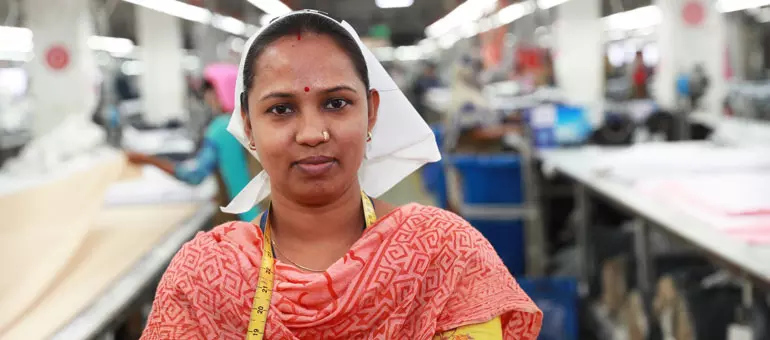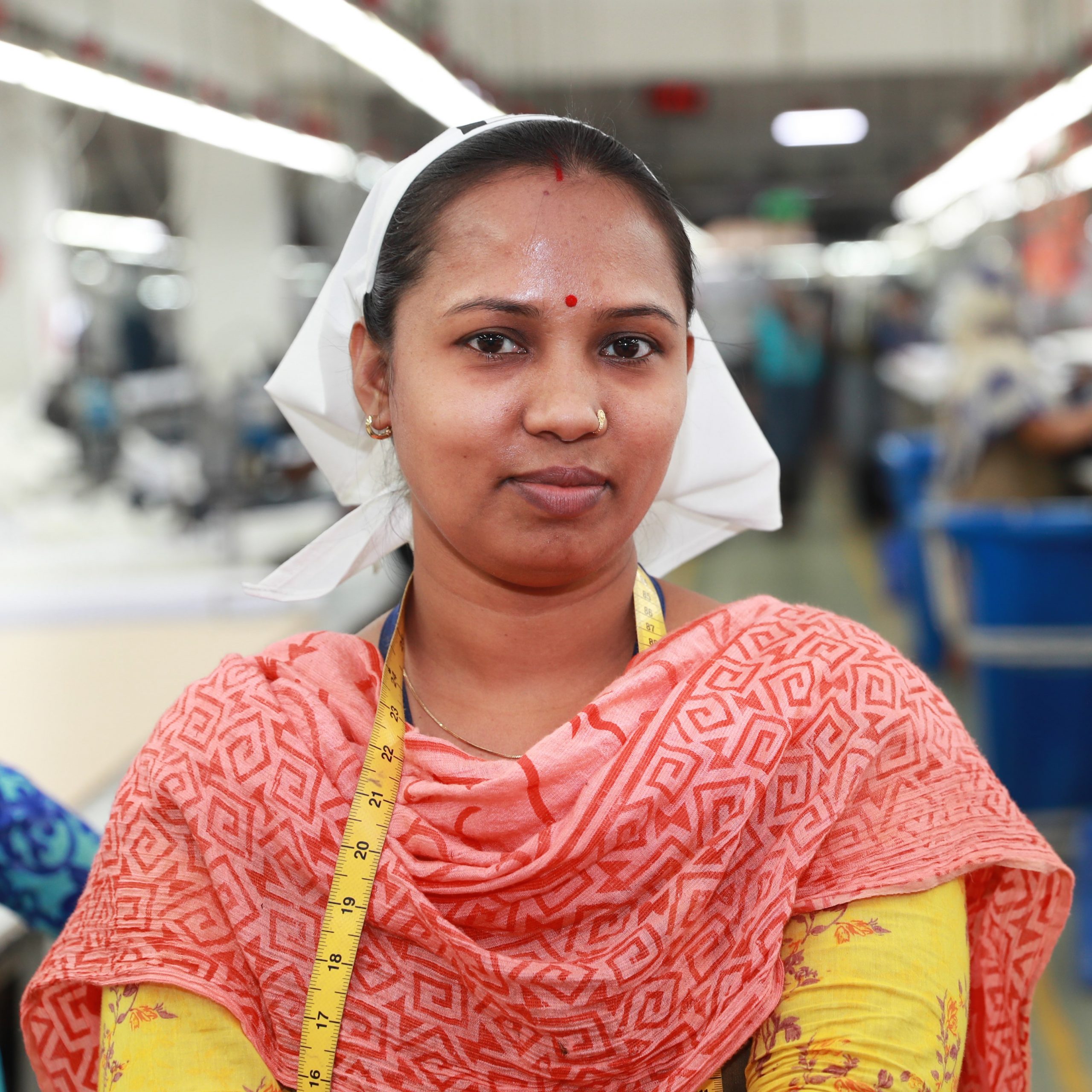15 November 2018 — The textile and clothing industries in Bangladesh are undoubtedly the main drivers of the country’s economic development. More than 80% of the country’s exports come from the ready-made garment sector and the textile and apparel industry contributes around 20% to Bangladesh’s gross domestic product (GDP).
According to the World Bank, Bangladesh hosts around 5,000 ready-made garments factories which employ around 4 million workers. Women account for between 60-80% of the garment’s workforce.
For a female garment worker in Dhaka, the day starts at 6 AM with a long ride to reach the Savar area, where most of the factories are located. Before leaving the house, she makes sure to have the food ready on the table for her husband and family. She works eight hours per day, if there is no overtime requested. Each worker has one hour dedicated for lunch; it is common practice to have lunch in thirty minutes and use the remaining time for a quick nap.

Mala is a quality controller in the cutting department of a garment factory in the Savar area. © GAIN/Yosuf Tushar
Being able to work and earn their own money to provide for their family has helped many Bangladeshi women to reclaim their independence and slowly push the entire country towards change. Even the lowest earning female workers such as sewing helpers contribute about 30% toward family income. Yet, few recognize that anaemia and malnutrition are rampant amongst these workers. According to a study from 2013, 77% of the female workforce (most of whom are young) is anaemic and 25% underweight. This type of undernutrition is undermining the women’s health and well-being, their productivity at work and the performance of this crucial sector.
GAIN started working in the garment sector in Bangladesh in 2014. Through its Workforce Nutrition programme, GAIN aims to improve the nutritional status of workers by providing improved lunches (including fortified rice), promoting iron-folic acid supplementation and peer-to-peer communication to inform workers of the benefits associated with a good diet. This approach has led to significant reductions in anaemia among female workers.
My daughter was underweight. I am now adding micronutrient powders to her food and I can clearly see her getting stronger and stronger.
Mala
Mala is a quality controller in the cutting department of a garment factory in the Savar area. As part of her job, she received training on nutrition-related subjects from GAIN’s implementing partners through the Workforce Nutrition programme. “Before the training course, we were given iron tablets by the doctor, but we were not aware of their function, so we would bring them home and forget about them. Now, I know how important they are to improve my overall health and reduce the risk of iron-deficiency,” Mala said.
Mala realised how important nutrition is to her overall health and well-being. “I used to think that hours off work were wasted hours, because I could not earn anything. Today, I am fully aware of the importance of taking time to prepare my food properly and have regular meals. Good nutrition helps me not only to perform well in my job, but also to enjoy my time at home. If you don’t eat properly, you end up being weak and too tired to spend time with your husband and kids,” she declared.
The training course also includes a module on how to improve hygiene practices, and how to prevent non-communicable diseases, such as diabetes, heart diseases, and cancers. “Many workers did not know anything about cancer and its implications. The lack of information affects their lives as they may find out about their illness too late”, said Mala.
In addition, the course covers topics such as child nutrition and the benefits of micronutrient powders. “My daughter was underweight. I am now adding micronutrient powders to her food and I can clearly see her getting stronger and stronger,” she said proudly.
Workforce nutrition interventions are an effective way of tackling the malnutrition problem. The evidence suggests that nutrition programmes implemented through the workplace can contribute to positive changes to nutritional health. These interventions are most effective for improving diets over the long term when coupled with education strategies, i.e. they can result in employees’ preference for healthy foods, and in their ability to make healthier nutritional choices for themselves and their families. Improved diets in the short and long term are not only good for individuals, but also businesses- as they can improve work capacity and reduce absenteeism (missed working days) and presenteeism (present at work but unable to function at full capacity). The effects of these changes reverberate onto business returns and, ultimately, the gross domestic product (GDP).
